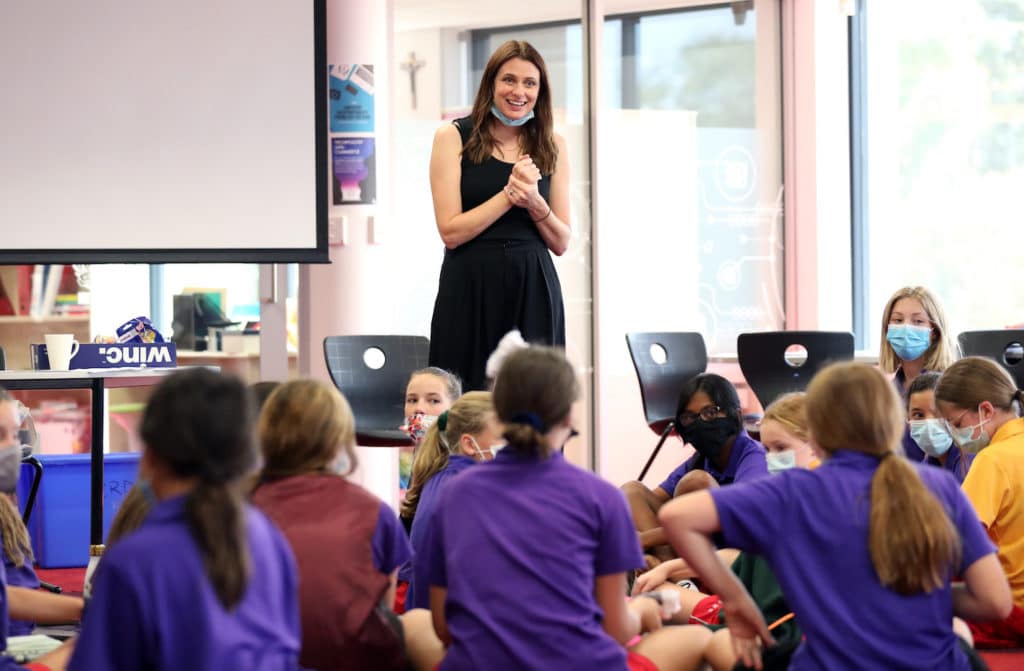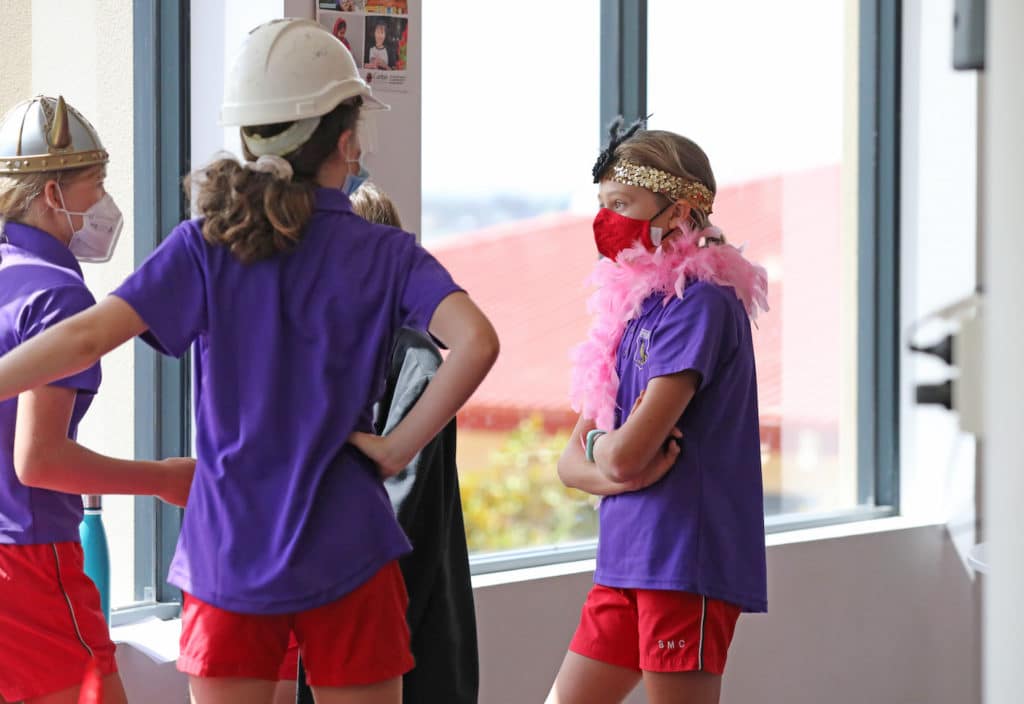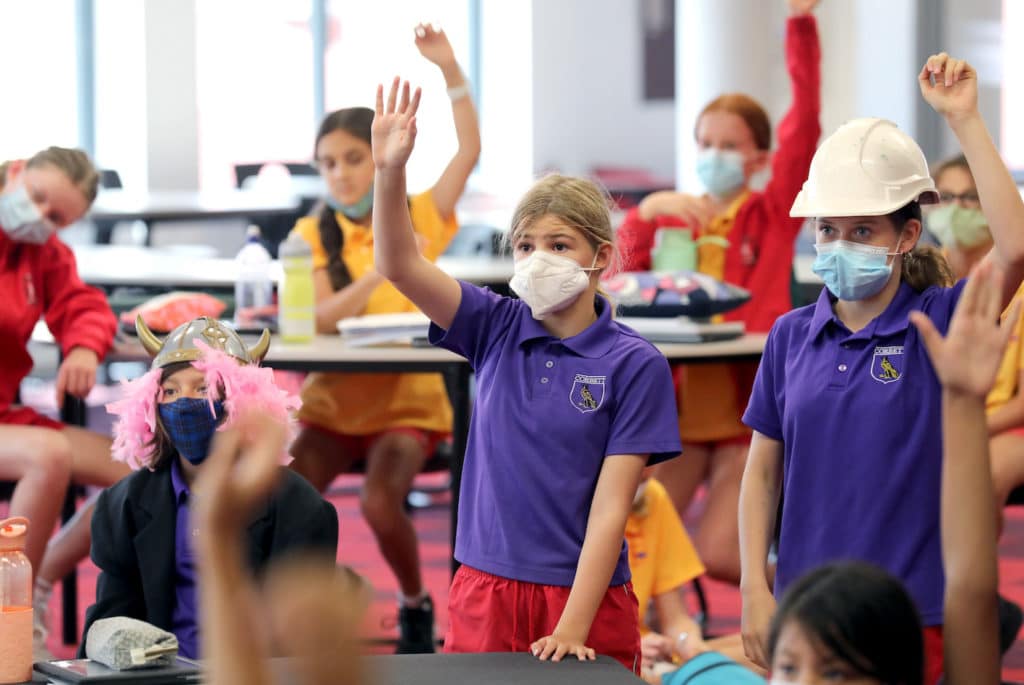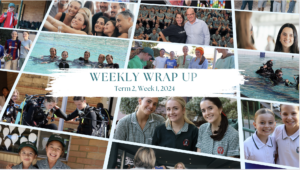Year 7s Learn Effective Conflict Resolution

Year 7s have participated in some valuable sessions this week as part of their Alternative Learning Day program. One of these sessions, Resolving Conflict, was with school psychologists Kimberlee Burrows and Majella Dennis. During this session, the Year 7s reflected on interpersonal conflict and had some fun role-playing both effective and ineffective conflict resolution.
Interpersonal conflict is inevitable in our lives. There will always be disagreements or fights with people we spend considerable time with – our family, peers, and later, our housemates, workmates, and spouses. Imagine how boring life would be if every human being we encountered agreed 100% with everything we said all the time!

The question then becomes not whether we fight but how we fight that will determine the quality of our future relationships and directly impact our mental health.
We Need to Learn How to Resolve Conflict
We aren’t just magically born with the ability to have effective conflict resolution skills; it is something we have to learn. Our time in school provides the perfect opportunity to practice and hone our conflict resolution skills.
During the session, the girls were faced with a role-play scenario in which two friends stumble across other friends who appear to be whispering and gossiping. This causes distress and feelings of betrayal and of being left out. The resulting confrontation inevitably involves anger and finger-pointing accusations about exclusion and talking behind others’ backs. Big hurt and broken hearts results. Then – plot twist. We learn about the back story of each character. The friends who appeared to be gossiping were really consoling each other, having recently discovered their parents were separating. The students reflected that once we understand someone’s story, maybe we can empathise and understand their behaviour. Often, we do not know what is going on behind the scenes in someone else’s life: their thoughts, feelings, present and past experiences that may cause them to react in particular ways.

Fighting Well
So how can this insight help guide our girls when there’s conflict? Fighting ‘well’ means:
- Being curious and empathic, focusing on “Hey, I noticed you seemed deep in conversation with Sarah when I came over, and I felt a bit confused. What’s going on for you?”, rather than “You were gossiping. What is wrong with you?!”
- Use “I feel” statements, rather than “you did” statements eg, “I felt hurt when it seemed you might be gossiping” rather than “You are a terrible friend for gossiping”. This means you avoid accusing others, particularly before you know the whole story.
- Listen. I mean, really listen with your whole body. Don’t be distracted thinking up what you are going to say next. Show the person you’ve listened to their side of the story by reflecting back on what they’ve said. Remember, increasing the volume of your voice does not increase the likelihood of you being heard. In fact, the opposite is true.
- Find the feeling behind the words. Ask yourself why this person might be upset. This can help you relate to their feelings, even if you don’t agree with their behaviour. For example, maybe little Emily gets angry and shouts abuse at Sarah when she thinks she’s the subject of gossip. Perhaps that’s because Emily’s friends mean the world to her, and the thought of losing them is heartbreaking. Emily’s feeling, we can relate to, even if we disagree with her behaviour of shouting abuse.
- Be ready to take responsibility for your actions, apologise, and forgive others. Every single one of us makes mistakes.
Here’s an infographic you might like to download.
What Can Parents Do?
If your daughter is experiencing peer conflict:
- Resist the temptation to solve it for her. Hard, I know. But, it’s not usually what our girls want from us. Nor is it typically helpful.
- Listen to her and validate her feelings. Reflect on what she’s saying and validate how she feels about it. You might ask her if she would like some advice from you – but often, our girls just want to feel heard.
- Encourage conflict resolution strategies (as above) if she needs/wants them.
- Give her the confidence that you believe in her, and she can get through this.
- Lead by example. Consider how you model conflict yourself.
Finally, no one (including us parents!) gets it right every time. This is a skill we’re learning at school, just like algebra or history. We might not pass every test, but hopefully, we can reflect on what we could do better next time.
Dr Kimberlee Burrows

The Power of Expectations in Shaping Student Success – Jennifer Oaten
Discover the transformative impact of expectations on student success. Learn how belief shapes outcomes in education and beyond.

Weekly Wrap Up: Term 2, Week 1, 2024
Term 2 has kicked off with a bang! We enjoyed the Year 11 Father-Daughter evening, celebrated Earth Day, and welcomed Dr. Mark Williams.

Inspiring Change: Earth Day 2024
Our Earth Day celebration this week was a powerful reminder of our collective responsibility to protect our planet for future generations.
- Featured, Learning4Life
Author: Santa Maria College
Santa Maria College is a vibrant girls school with a growing local presence and reputation. Our Mission is to educate young Mercy women who act with courage and compassion to enrich our world. Santa Maria College is located in Attadale in Western Australia, 16 km from the Perth CBD. We offer a Catholic education for girls in Years 5 – 12 and have 1300 students, including 152 boarders.






